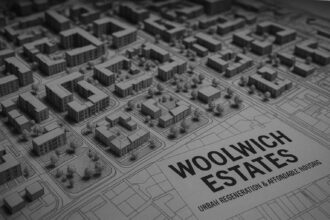Calls to dismantle the Scottish Qualifications Authority and redesign secondary education have intensified, but government reluctance to adopt Professor Ken Muir’s recommendations threatens to derail meaningful change.
The call for reform within Scotland’s education system has reached a crescendo, prompting unprecedented attention from both the government and educators. The Scottish National Party (SNP) has found it increasingly difficult to overlook public outcry regarding the Scottish Qualifications Authority (SQA) and the broader structure of secondary education. This urgency led to the promise of discarding the SQA, alongside a pivotal review of the educational framework overseen by Professor Ken Muir. His extensive recommendations highlighted the necessity of restructuring the functions of the SQA to eliminate the conflicts of interest inherent in its dual role as regulator and examination authority.
Professor Muir’s report underscored that the new qualifications body must not replicate the failures of its predecessor. It recommended significant shifts, such as creating an independent agency for curriculum and assessment that aligns more closely with best practices observed in other education systems around the world. There was an insistence on placing the needs and experiences of learners at the forefront, as this is crucial for restoring public trust and enhancing educational outcomes.
Despite initial optimism, many stakeholders have expressed disappointment, noting that the government has already dismissed substantive changes proposed by the Muir review. The much-touted “National Discussion” aimed to generate a renewed vision for Scottish education reluctantly faded into obscurity. The hopes for transformative reform now appear diminished, as the proposed new body is expected to retain the same powers and leadership from the SQA, prompting frustration among educators who feel trapped in a cycle of ineffective reform.
As experts point out, the aspiration to transform Scottish education must not be abandoned. The stakes are too high, and the challenges faced over the years—accentuated by the disruptions caused by the Covid-19 pandemic—demand a more innovative approach. Trust between educators and the SQA has suffered, documented as a growing concern within the educational community. The SQA has acknowledged this erosion of confidence, with its interim leadership identifying “resetting relationships” as a critical priority in their ongoing transformation efforts.
While The Herald’s exploration of potential reforms has been commendable, recognising that merely 18 pages cannot encapsulate the complexity of Scottish educational needs, the publication nonetheless sets a groundwork for essential discussions. The exploration of Broad General Education and potential alternatives such as Foundation Apprenticeships exemplifies a fraction of the complexity involved in overhauling the secondary education structure.
In looking beyond Scotland, comparisons with educational systems in Europe and North America reveal that diverse approaches can yield better learner outcomes. These examples underscore the necessity to make informed decisions that prioritise the well-being of students without clinging to outdated models. The ongoing transformation of the SQA is also expected to play a pivotal role in determining the feasibility of proposed reforms.
Moving forward, it is imperative that the conversation surrounding education reform continues, fostering a collaborative dialogue among all stakeholders. The urgency for change remains, and the responsibility lies with educators, policymakers, and the community at large to reinvigorate efforts aimed at reshaping a more effective and inclusive educational landscape for Scotland’s youth.
Reference Map
- Paragraph 1: [1]
- Paragraph 2: [2], [5]
- Paragraph 3: [1]
- Paragraph 4: [1], [6]
- Paragraph 5: [1], [3]
- Paragraph 6: [1], [4], [7]
- Paragraph 7: [1], [6]
Source: Noah Wire Services
- https://www.heraldscotland.com/news/25139073.herald-trying-reimagine-secondary-schools/?ref=rss – Please view link – unable to able to access data
- https://www.gov.scot/publications/putting-learners-centre-towards-future-vision-scottish-education/ – Professor Ken Muir’s report, ‘Putting Learners at the Centre: Towards a Future Vision for Scottish Education,’ outlines recommendations for reforming Scotland’s education system. Key proposals include replacing the Scottish Qualifications Authority (SQA) with a new qualifications and assessment body, creating a new national agency for Scottish education, and establishing an independent inspectorate. The report emphasizes placing learners and educators at the heart of the system to enhance learning outcomes and public trust.
- https://www.gov.scot/publications/advisor-to-the-scottish-government-on-the-reform-of-sqa-and-education-scotland-remit/ – This document details the terms of reference for Professor Ken Muir’s advisory role in reforming the SQA and Education Scotland. It outlines the scope of his work, including designing the implementation of OECD recommendations for structural changes, considering the creation of a new curriculum and assessment agency, and ensuring reforms align with the Scottish Government’s objectives. The advisory process aims to engage widely across the education sector, incorporating diverse perspectives to inform the reform process.
- https://www.gov.scot/publications/advisor-on-the-reform-of-sqa-and-education-scotland-draft-remit/ – This draft remit sets out the terms for Professor Ken Muir’s advisory role in reforming the SQA and Education Scotland. It includes providing advice on aspects of education reform, designing the implementation of OECD recommendations for structural changes, and considering the replacement of the SQA with a new curriculum and assessment agency. The remit emphasizes engaging widely across the education sector and ensuring reforms align with the Scottish Government’s objectives.
- https://www.tes.com/magazine/news/general/reforms-must-go-far-beyond-scottish-education-bill-msps-told – Professor Ken Muir, author of the 2022 Muir report on Scottish education reform, has stated that proposed reforms must go ‘far beyond’ the Education (Scotland) Bill. He emphasized the need for significant changes to the qualifications and national education agencies, expressing concerns that the current bill may not fully address the recommendations from major reviews and reports. Muir advocates for a more radical approach to achieve meaningful reform in Scottish education.
- https://www.tes.com/magazine/analysis/general/muir-report-scotland-schools-could-break-mould-scottish-education – An analysis of Professor Ken Muir’s report on Scottish education reform, highlighting its comprehensive recommendations. The report suggests establishing a new national debate on education to renew the curriculum, abolishing the SQA, separating accreditation and awarding functions, creating a new national agency for curriculum and assessment, and establishing an independent inspection body. The analysis discusses the potential impact of these recommendations on Scottish education and the challenges in implementing such significant changes.
- https://www.gov.scot/publications/education-reform/ – The Scottish Government has accepted all 12 recommendations from the OECD report on education reform. Plans include reconvening the Scottish Education Council with a refreshed membership, creating a new Children and Young People’s Education Council, and replacing the SQA with a new specialist agency for curriculum and assessment. These reforms aim to place the voices of young people, parents, teachers, and schools at the center of education policy to improve outcomes for children and young people.
Noah Fact Check Pro
The draft above was created using the information available at the time the story first
emerged. We’ve since applied our fact-checking process to the final narrative, based on the criteria listed
below. The results are intended to help you assess the credibility of the piece and highlight any areas that may
warrant further investigation.
Freshness check
Score:
6
Notes:
The narrative is built on recent developments in Scottish education, including references to the Muir review and the ongoing transformation of the SQA. However, it echoes themes and concerns that have circulated over recent years, and there is no indication of a major new event or press release. There is some risk that the narrative reiterates established topics rather than presenting breaking news.
Quotes check
Score:
7
Notes:
There are no direct quotes from named individuals in the provided text. The narrative summarises expert opinions and refers to documented reports (such as the Muir review), with links to official sources. No ripoffs of unattributed quotes are present. Originality of the article’s expression is moderate.
Source reliability
Score:
9
Notes:
The narrative originates from The Herald, a well-established Scottish newspaper with a reputation for credible reporting. It also references official government publications and expert commentary, which are considered reliable sources.
Plausability check
Score:
8
Notes:
The claims about the state of Scottish education, the Muir review, and the challenges facing the SQA are consistent with credible reports and ongoing public debate. The timeline and sequence of events align with official documentation and recent commentary from educators and policymakers.
Overall assessment
Verdict (FAIL, OPEN, PASS): PASS
Confidence (LOW, MEDIUM, HIGH): HIGH
Summary:
The narrative is a balanced, credible overview of recent discussions regarding Scottish education reform. It references reputable sources and is plausible, despite the absence of direct, attributable quotes and some reliance on previously covered themes.













